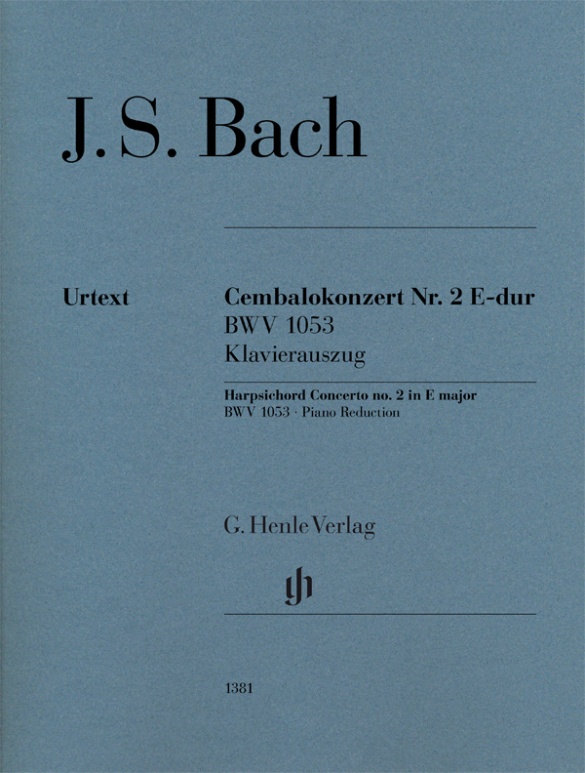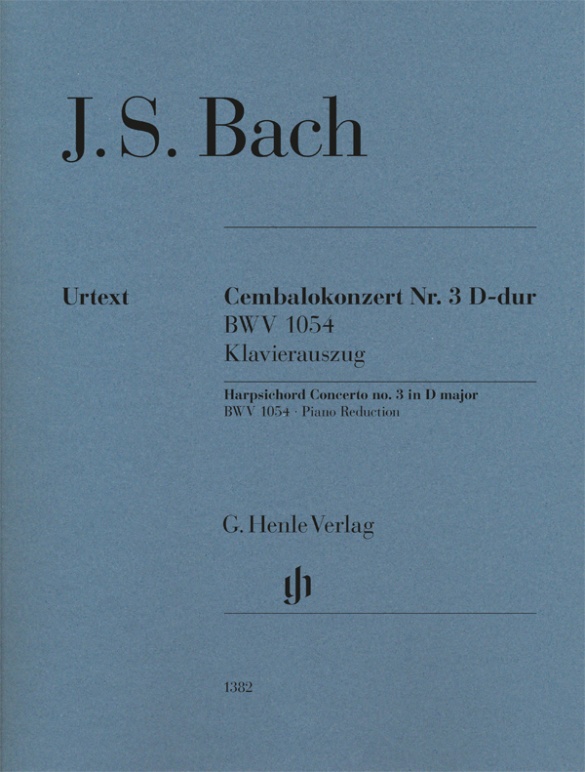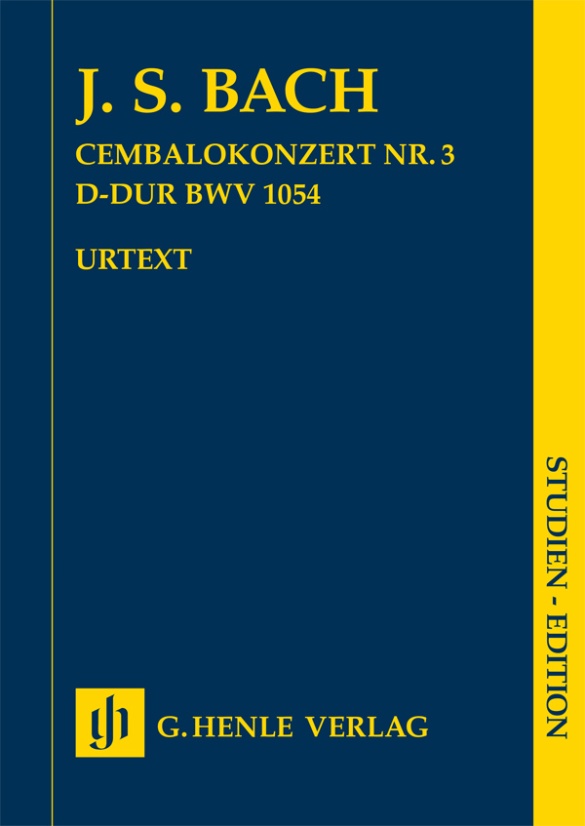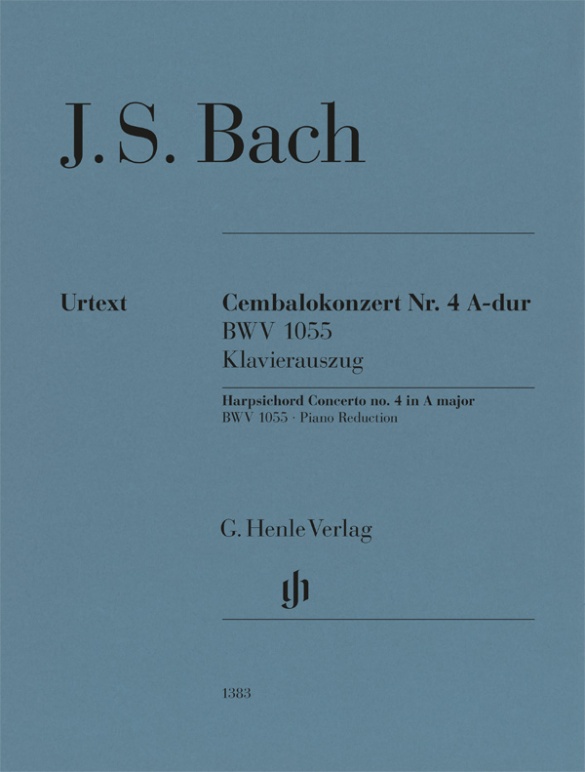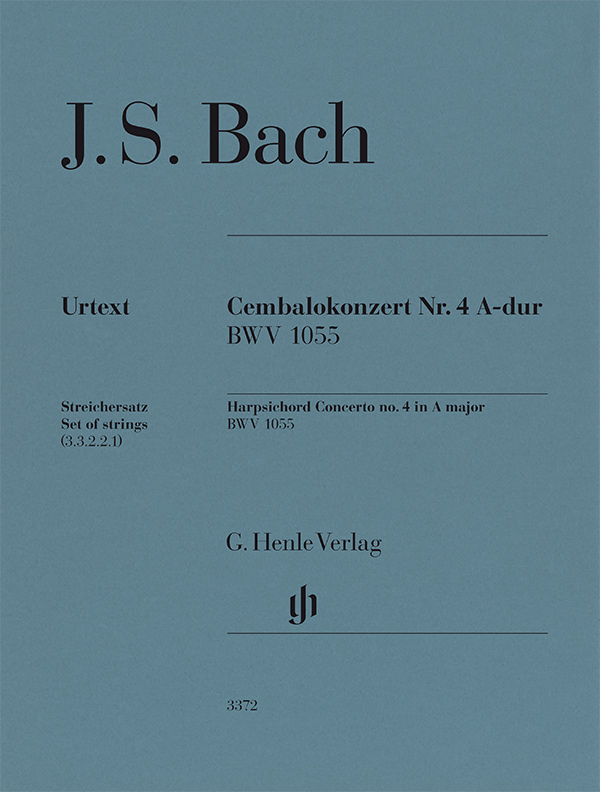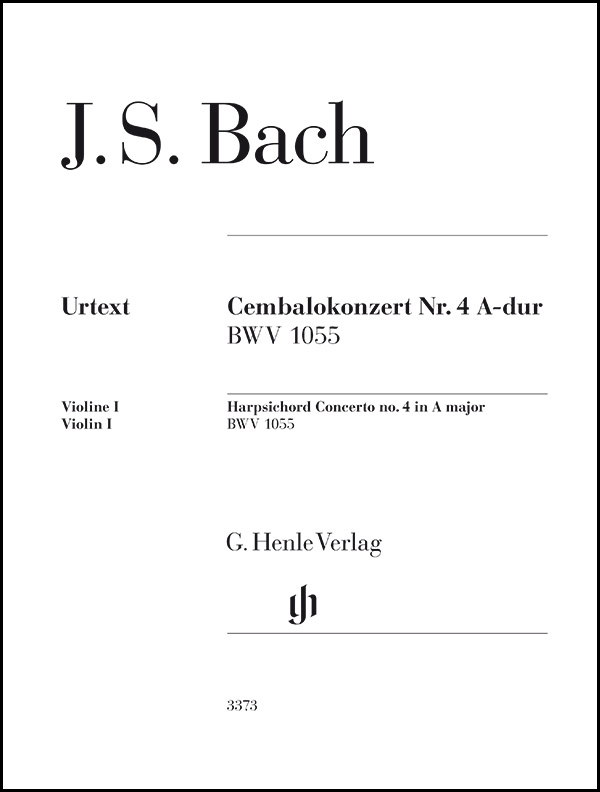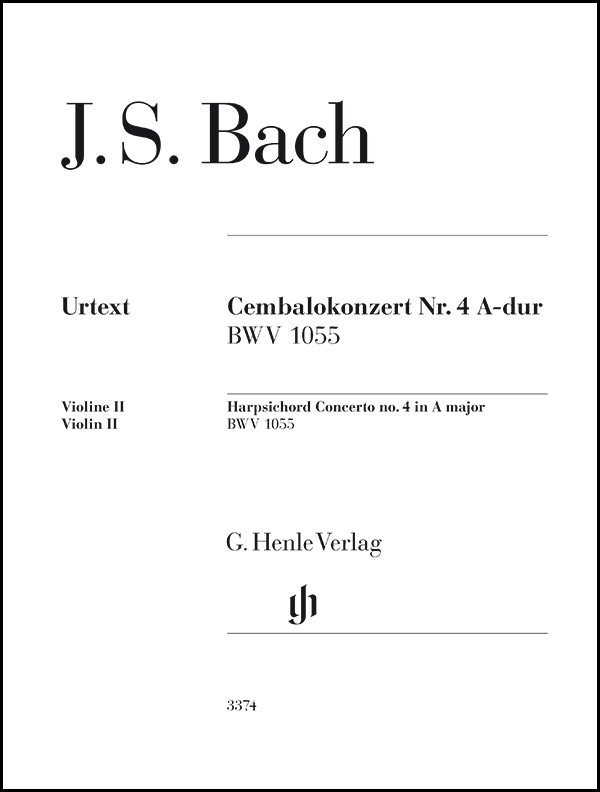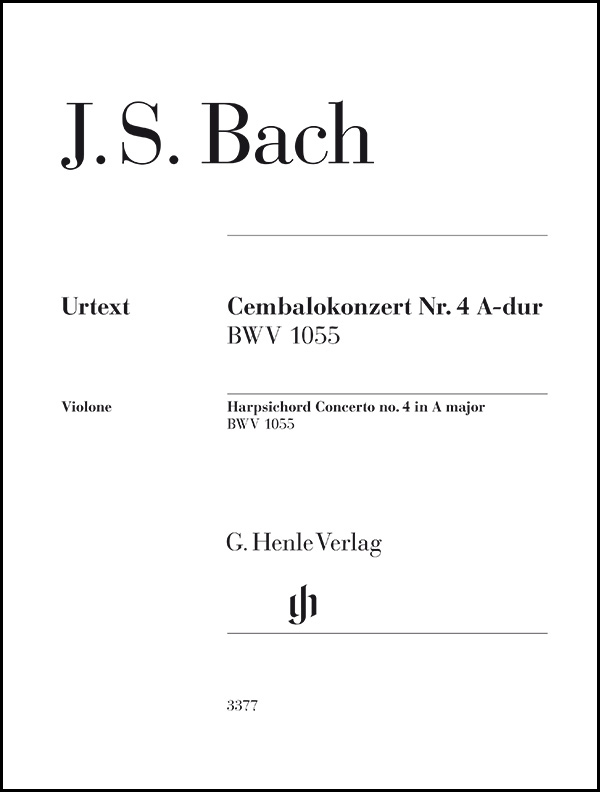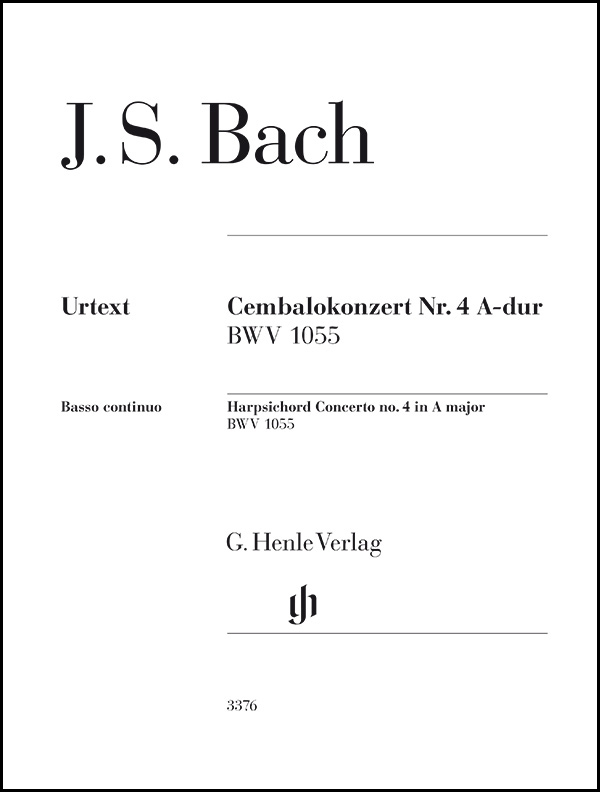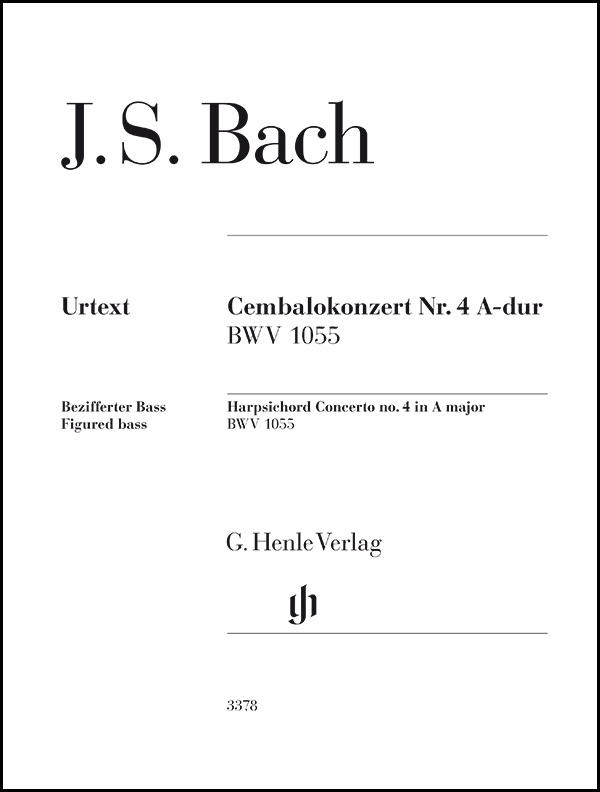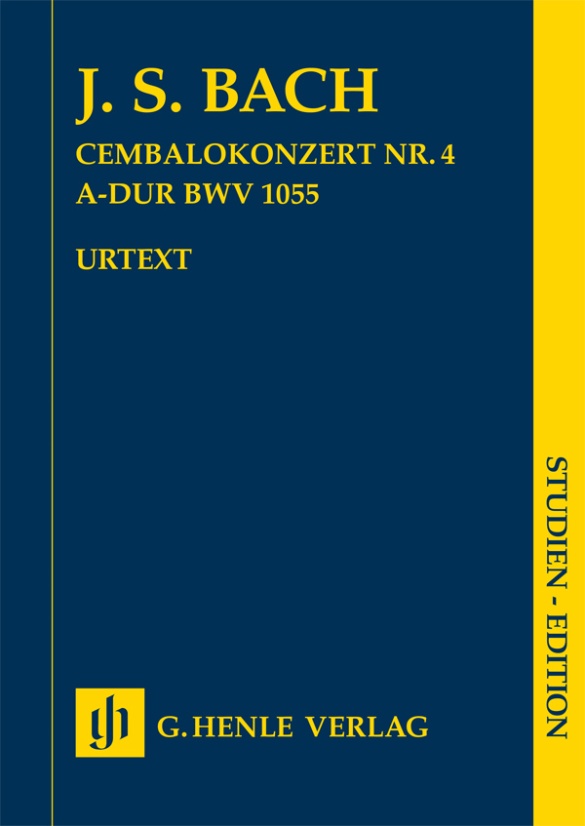Johann Sebastian Bach
Harpsichord Concerto no. 2 E major BWV 1053
It is almost impossible to tell from listening to them that Bach’s extremely popular concerti for harpsichord were probably his own transcriptions of solo concerti which had originally been composed for violin or a woodwind instrument. The outer movements of the second concerto, in E major, probably written around 1738, sparkle with joy, while the expressive melodic lines of the middle movement, the Siciliano in C-sharp minor, transport the listener to the realm of his Passion music.G. Henle Publishers presents this repertoire standard in an Urtext edition with an extensive commentary. The study edition (HN 7381) features the complete orchestral score; the piano reduction (HN 1381) contains the solo part as well as a very playable piano reduction of the score prepared by Johannes Umbreit for practical use.
内容/詳細
作曲家について
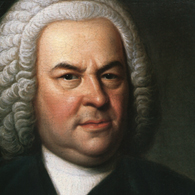
Johann Sebastian Bach
For many musicians he is “the Alpha and Omega of all music” (Max Reger). Except for operas, Bach composed masterpieces for every ensemble and genre of his age. His catalogue of works contains almost 1,100 entries, including the great Passions of St. Matthew and St. Johan, the Goldberg Variations, the Brandenburg Concerti, or hundreds of singular cantatas. As organist in Mühlhausen and Weimar he creates primarily organ compositions, concerti, and works of chamber music. Later, as music director in Köthen and for the decades he serves as cantor in Leipzig, he composes chiefly sacred vocal compositions and keyboard works. His later, contrapuntally complex compositions exert an enormous influence on the compositional styles and practices of later generations.
| 1685 | Born in Eisenach on March 21, the son of conductor and court musician Johann Ambrosius Bach. |
| 1693–95 | He attends the Latin school in Eisenach. |
| 1695–1700 | Enrolls at the lyceum in Ohrdruf, where he will live with his eldest brother, Johann Christoph, after the death of his parents; among other things, organist, and pupil of Pachelbel. |
| from 1700 | Member of the Lüneburg matins choir. Travels to Hamburg to hear Reincken at the organ. |
| 1703 | Appointment in Weimar for two quarters of a year (at the home of Duke Johann Ernst the elder). |
| 1703–07 | Organist in Arnstadt. Composition of organ works, possibly early preludes and fugues BWV 531, 549a, 575; chorales from the Neumeister Collection BWV 1090–95, 1097–1120; chorale partitas BWV 766–68, 770. |
| 1705 | Journey to Buxtehude in Lübeck. |
| 1707–08 | Appointment as organist at St. Blasius in Mühlhausen. Composition of his first cantatas (BWV 71 and 131, likely also BWV 4, 106, 150, 196). |
| 1708–17 | Appointment in Weimar as organist to Duke Wilhelm Ernst of Saxe-Weimar; composition of the Little Organ Book, BWV 599–644; of preludes (toccatas, fantasias) and fugues (probably BWV 894, 903, 944, 910–916); the Passacaglia in C minor, BWV 582; the Pièce d’Orgue in G major, BWV 572; organ transcriptions of instrumental concerti including Vivaldi’s “L’Estro Armonico.” From 1714 concertmaster, composer of cantatas. |
| 1710 | Birth of Wilhelm Friedemann Bach. |
| 1714 | Birth of Carl Philipp Emanuel Bach. |
| around 1713 | Premiere in Weissenfels of the cantata “Was mir behagt, ist nur die muntre Jagd!”, BWV 208. |
| 1717–23 | Appointed “Court Kapellmeister and Director of the royal chamber music” in Köthen to Prince Leopold von Anhalt-Köthen. He mainly composes keyboard music (completes the English Suites, BWV 806–811; begins the French Suites, BWV 812–817 around 1722; the “Clavier-Büchlein vor Wilhelm Friedemann Bach” from 1720; the “The Well-Tempered Clavier,” Book 1, in 1722; the first notebook for Anna Magdalena Bach from 1722; Inventions and Sinfonias for keyboard, BWV 772–801, in 1723), chamber music (Sonatas and Partitas for solo violin, BWV 1001–1006, in 1720), concerti (Brandenburg Concerti, BWV 1046–1051, dedicated to the Margrave of Brandenburg, in 1721); a few secular cantatas (including BWV 134a, 173a). |
| 1723–50 | Cantor at St. Thomas Church in Leipzig. |
| 1723–29 | First Leipzig period, primarily defined by liturgical compositions. |
| 1723/24 | First year’s cycle of cantatas: integration of existing cantatas from his time in Weimar and Köthen; parody techniques, that is, replacing the texts of the cantatas for new purposes. |
| 1724 | Performance of the St. John Passion, BWV 245, and the Magnificat, BWV 243a. |
| 1724/25 | Second year’s cycle of cantatas, with new compositions. |
| 1726 | Publication of the first Partita from the later Clavier-Übung (Keyboard Practice), BWV 825–830. |
| 1727 | Performance of the St. Matthew Passion, BWV 244. |
| 1729–39 | Second Leipzig period, informed by his direction of the Collegium Musicum, which Telemann had founded (1729–37 and 1739 until at least 1741), and thus by the composition of instrumental works as well as of large-scale vocal works. |
| around 1730 | Six Trio Sonatas for Organ (BWV 525–530), important preludes and fugues (B minor, BWV 544; C major, BWV 547; E minor, BWV 548). |
| from/around 1730 | Establishment of a new type of concerto with his concertos for 1–4 harpsichords (which are almost all transcriptions of concerti with solo melodic instruments). Further compositions for instrumental ensembles. |
| 1731 | Performance of the St. Mark Passion, BWV 247 (lost). Journey to Dresden for the performance of an opera by Hasse. Clavier-Übung I, BWV 825–830. |
| 1733 | Composition of a Lutheran mass (Kyrie and Gloria), whose movements are later included in the Mass in B minor, BWV 232; with it he requests a court position from Elector Frederick Augustus II in Dresden. |
| 1734/35 | Premiere of the Christmas Oratorio, BWV 248. |
| 1735 | Ascension Oratorio, BWV 11. Birth of Johann Christian Bach. Clavier-Übung II, BWV 971, 831. |
| 1736 | Title of Electoral Saxon Court Composer from Frederick Augustus II. |
| around 1738/39 | Four Lutheran masses, BWV 233–236. |
| 1739–50 | Third Leipzig period, characterized by compositions of his late phase featuring stile antico and complicated contrapuntal techniques. Climax of Bach’s keyboard output. |
| 1739 | Clavier-Übung III, BWV 802–805. |
| 1741 | Clavier-Übung IV, BWV 988 (Goldberg Variations). |
| 1739/42 | “The Well-Tempered Clavier,” Book Two, BWV 870–893. |
| 1747 | Journey to Potsdam, where he improvises a fugue on a theme by the king, from which emerges “The Musical Offering,” BWV 1079. Member of the Correspondence Society of Musical Sciences; submission of the Canonic Variations on “Vom Himmel hoch, da komm ich her,” BWV 988, for membership. Schübler Chorales, BWV 645–650. |
| 1749 | Completion of the Mass in B minor, which is largely based on earlier compositions that were revised and amended. |
| 1750 | “The Art of the Fugue,” which remains unfinished. Death in Leipzig on July 28. |
校訂者や運指担当者について
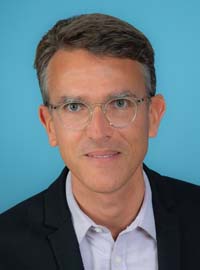
Norbert Müllemann (校訂)
Dr. Norbert Müllemann, born in 1976 in Cologne, studied musicology, German philology and philosophy at the University of Cologne whilst at the same time studying the piano at the Music Conservatory in Cologne.
In 2004 he began working at G. Henle Publishers as an intern. In 2005 he became a junior editor, whilst at the same time starting his doctorate at the Ludwig-Maximilians-Universität in Munich. He completed it in 2008 with a thesis entitled “Handschriften Frédéric Chopins bis 1830. Studien zur Authentizität, Datierung und Werkgenese”. Since 2008 Müllemann has been an editor at the publishing house, becoming editor-in-chief in 2017 and Head of Publishing in 2024. He has edited numerous Urtext editions for the publisher with a particular focus on the works of Frédéric Chopin.
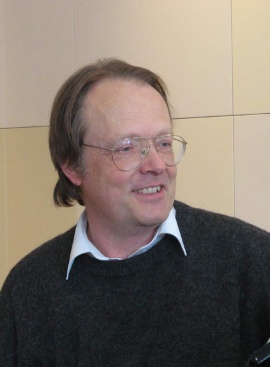
Johannes Umbreit (ピアノ・スコア)
Prof. Johannes Umbreit studied the piano at the Musikhochschule in Munich. From 1987 onwards he was a regular accompanist at courses given by Wolfgang Schneiderhan, Thomas Brandis, Ljerko Spiller, Igor Ozim, Olga Woitowa, Ernő Sebestyén, Walter Nothas, F. Andrejevsky, Denis Zsigmondy and Zakhar Bron amongst others. He has appeared in numerous radio and TV broadcasts and plays chamber music with members of the Bavarian State Orchestra, the Munich Philharmonic Orchestra and the Bavarian Radio Symphony Orchestra.
He is on the jury of different international competitions and has been invited to several international music festivals. Umbreit was a teacher for almost ten years at the Musikhochschule in Munich and at the same time a lecturer for chamber music and piano accompaniment at the Richard Strauss Conservatory. Since 2008 he has been a lecturer at the Hochschule für Musik und Theater München. As the long-serving managing director of the Richard-Strauss-Gesellschaft, he was made an honorary member of the board in 2009. In May 2011, the Bavarian Minister of Culture appointed Johannes Umbreit an honorary professor of the Hochschule für Musik und Theater München on the suggestion of its academic senate.
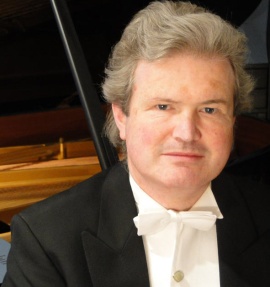
Michael Schneidt (運指)
Michael Schneidt, born in Munich, received his piano education at the Staatliche Hochschule für Musik und Theater in Munich, studying with Hugo Steurer and Klaus Schilde. He then completed his artistic state examination with distinction as well as his master-class diploma. He continued his education on a grant from the DAAD with Alessandro Specchi in Florence, also taking master-classes with Paul Badura-Skoda and Bruno Leonardo Gelber. Michael Schneidt has been a prize-winner at international piano competitions (1st prize Viotti-Valsesia, Italy), has done radio and TV broadcasts and also made CD recordings; he has also premiered many contemporary piano works. He has performed in Europe (e.g. at the Prague Spring International Music Festival and at the German Mozart Festival), in Japan and in South America.
Michael Schneidt is Professor of Piano at the Staatliche Hochschule für Musik und Theater in Munich. He has given master-classes in Germany, Switzerland, the Czech Republic and Japan, and is from time to time a member of the jury at music competitions.
製品安全に関する情報

G. Henle Verlag
製品の製造元に関する情報はこちらでご覧いただけます。G. Henle Verlag
Forstenrieder Allee 122
81476 München
info@henle.de
www.henle.com
Het afzonderlijk uitgegeven klavieruittreksel (met daarin op gescheiden balken de solo en de orkestpartij) werd vervaardigd door Henle’s (kennelijk) vaste medewerker Johannes Umbreit.
de nieuwe muze, 2021おすすめ
autogenerated_cross_selling
このタイトルを含む他の版


